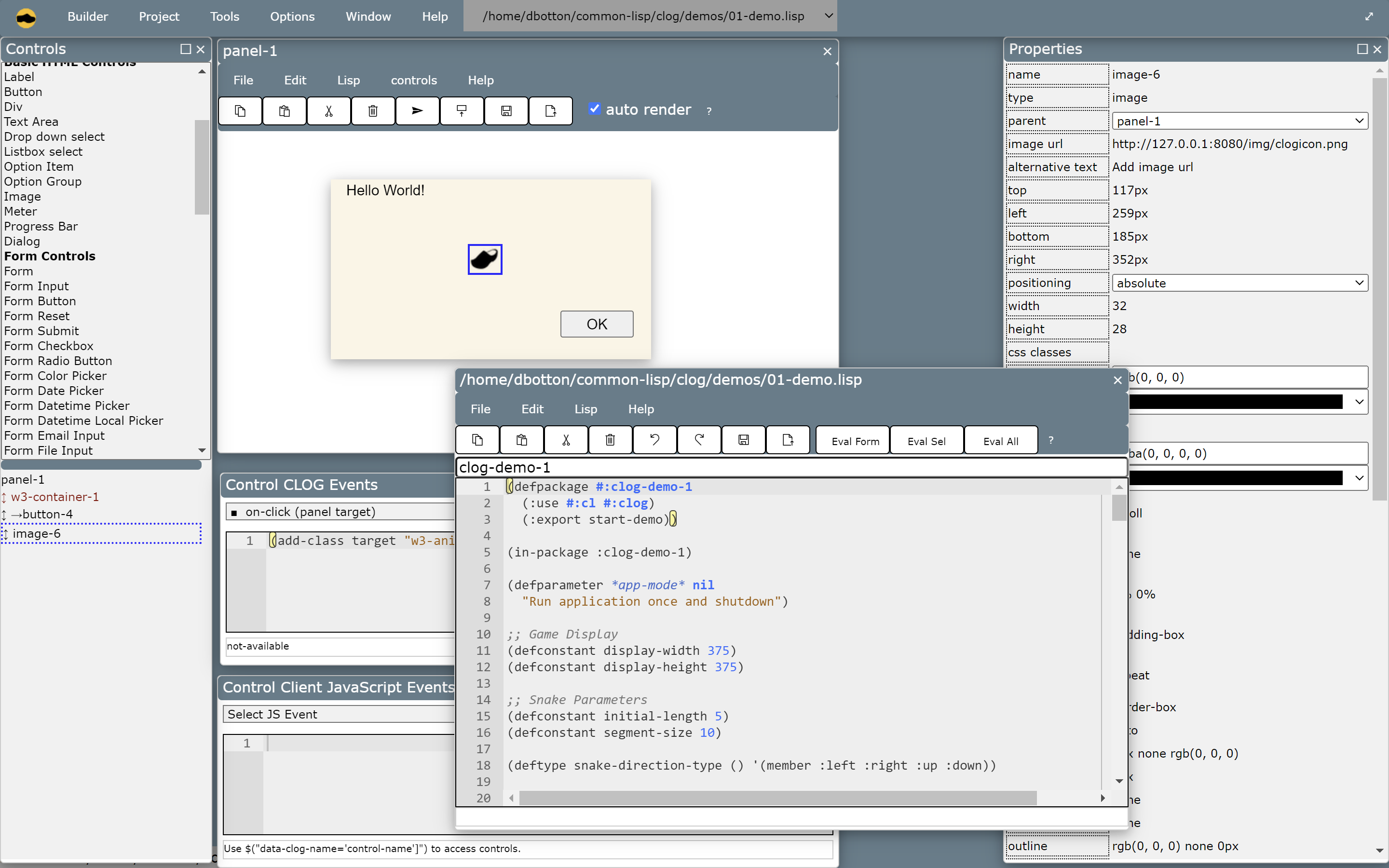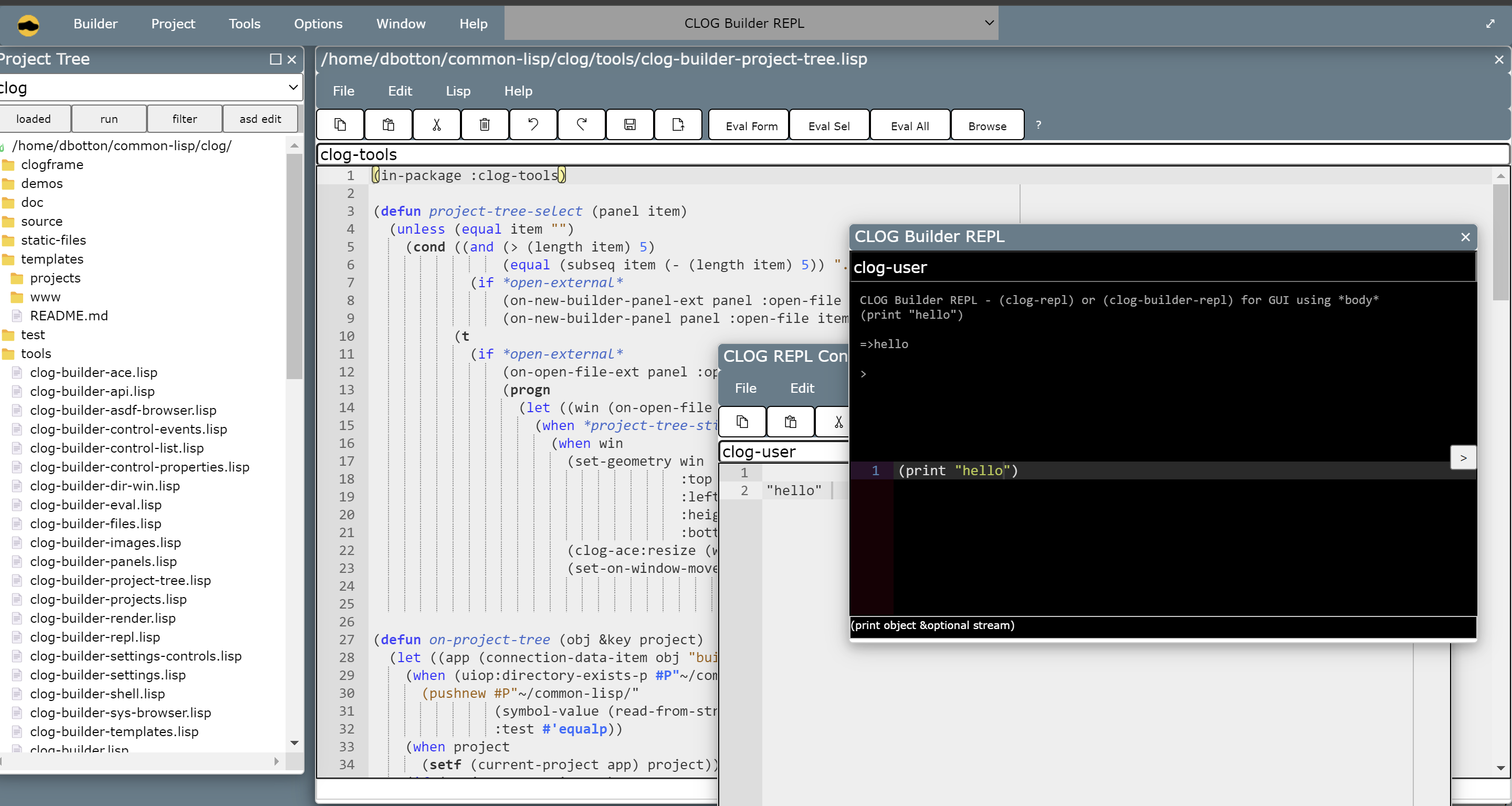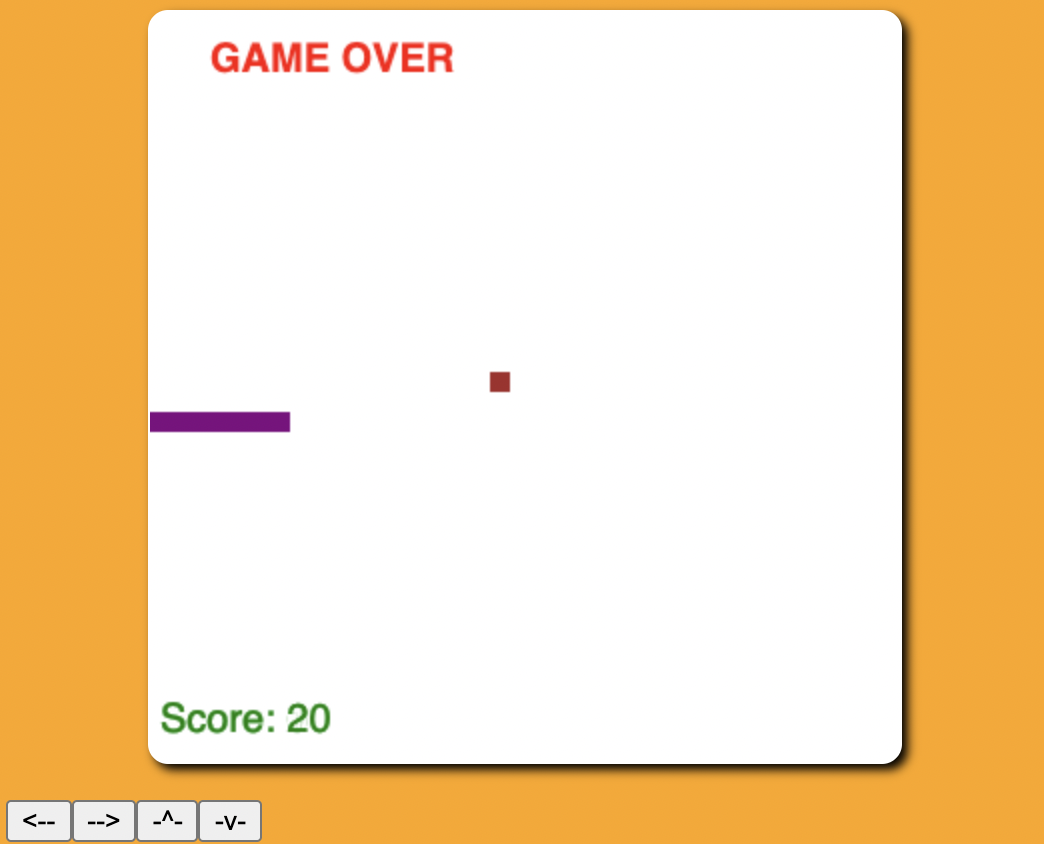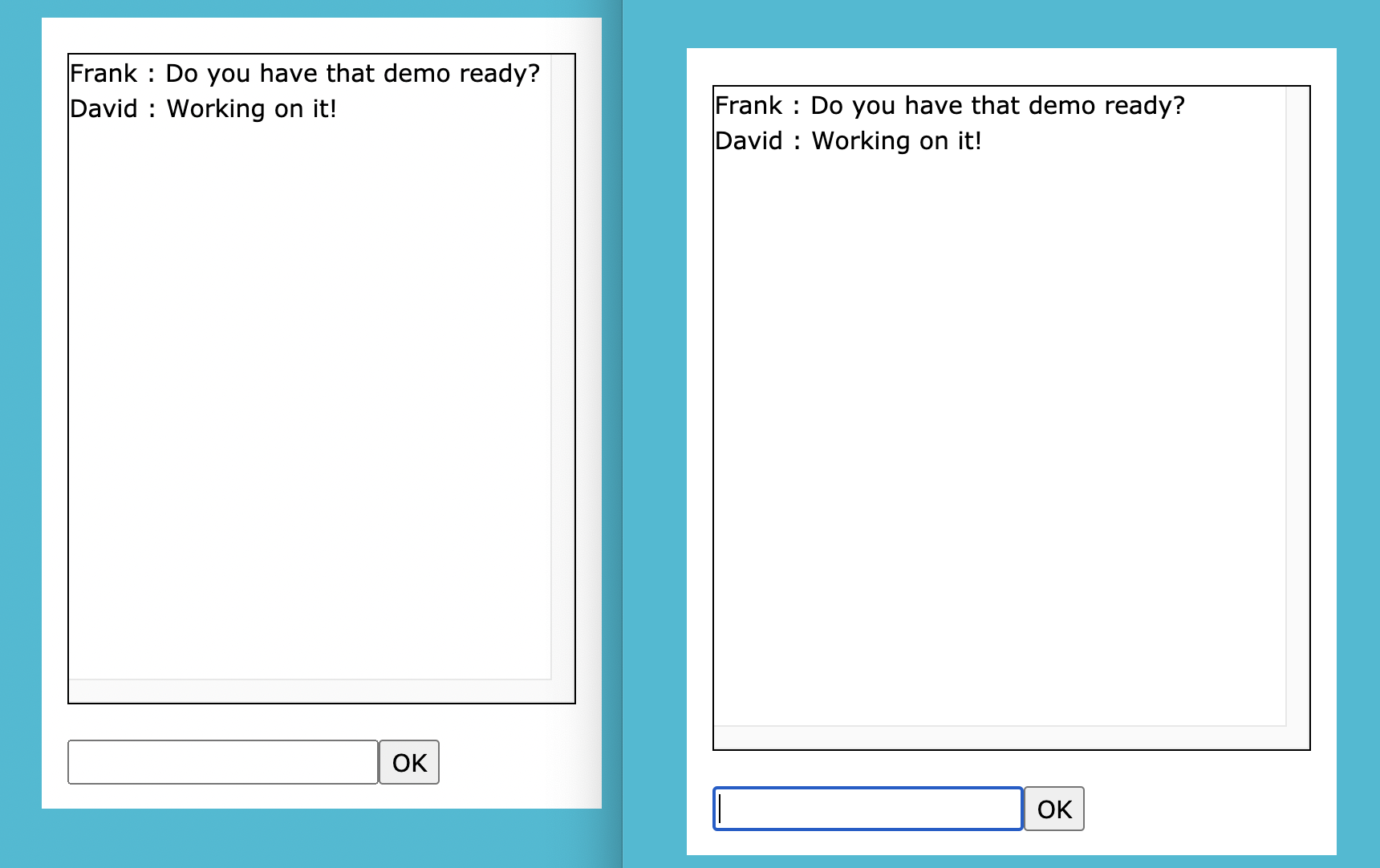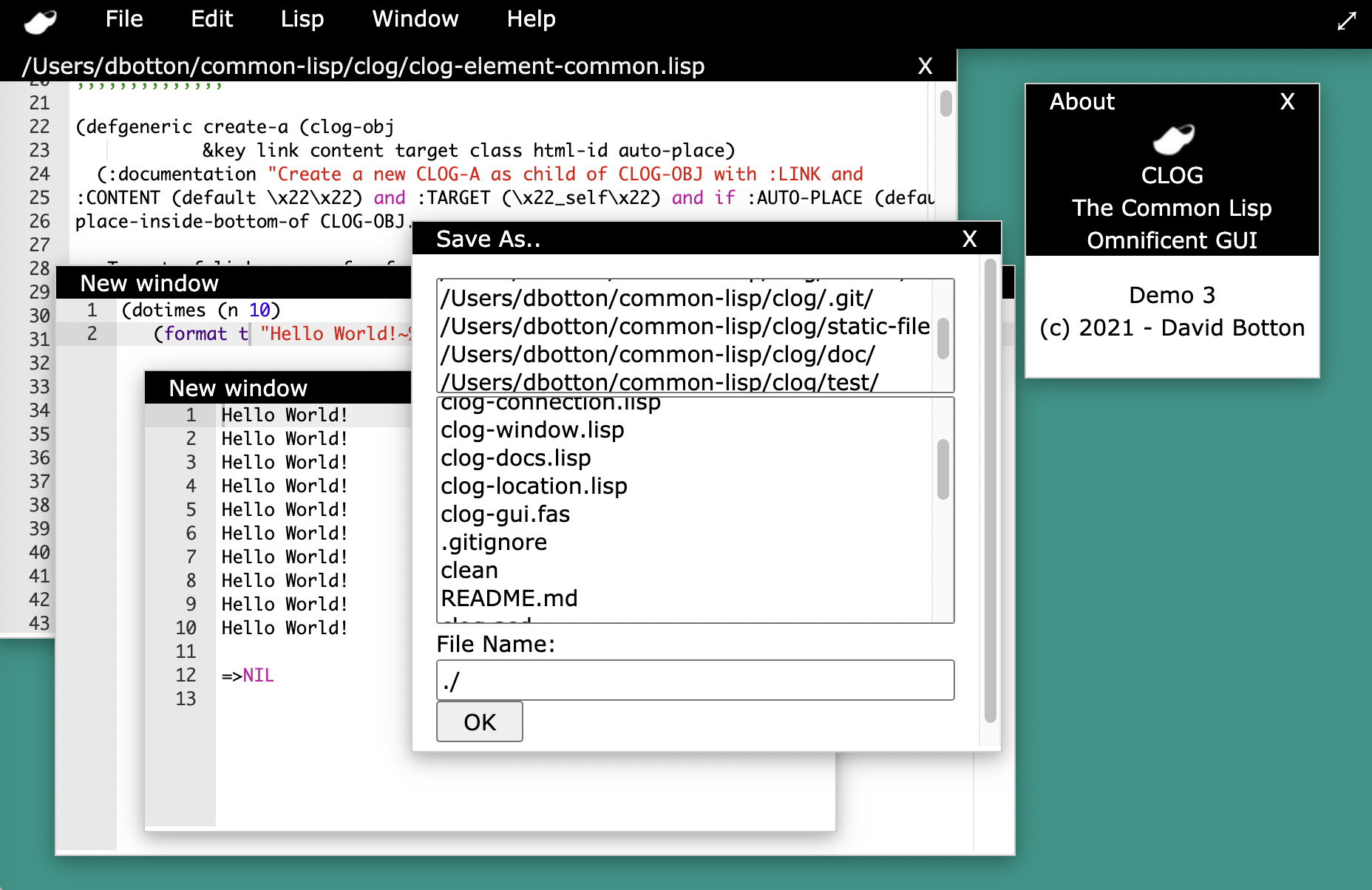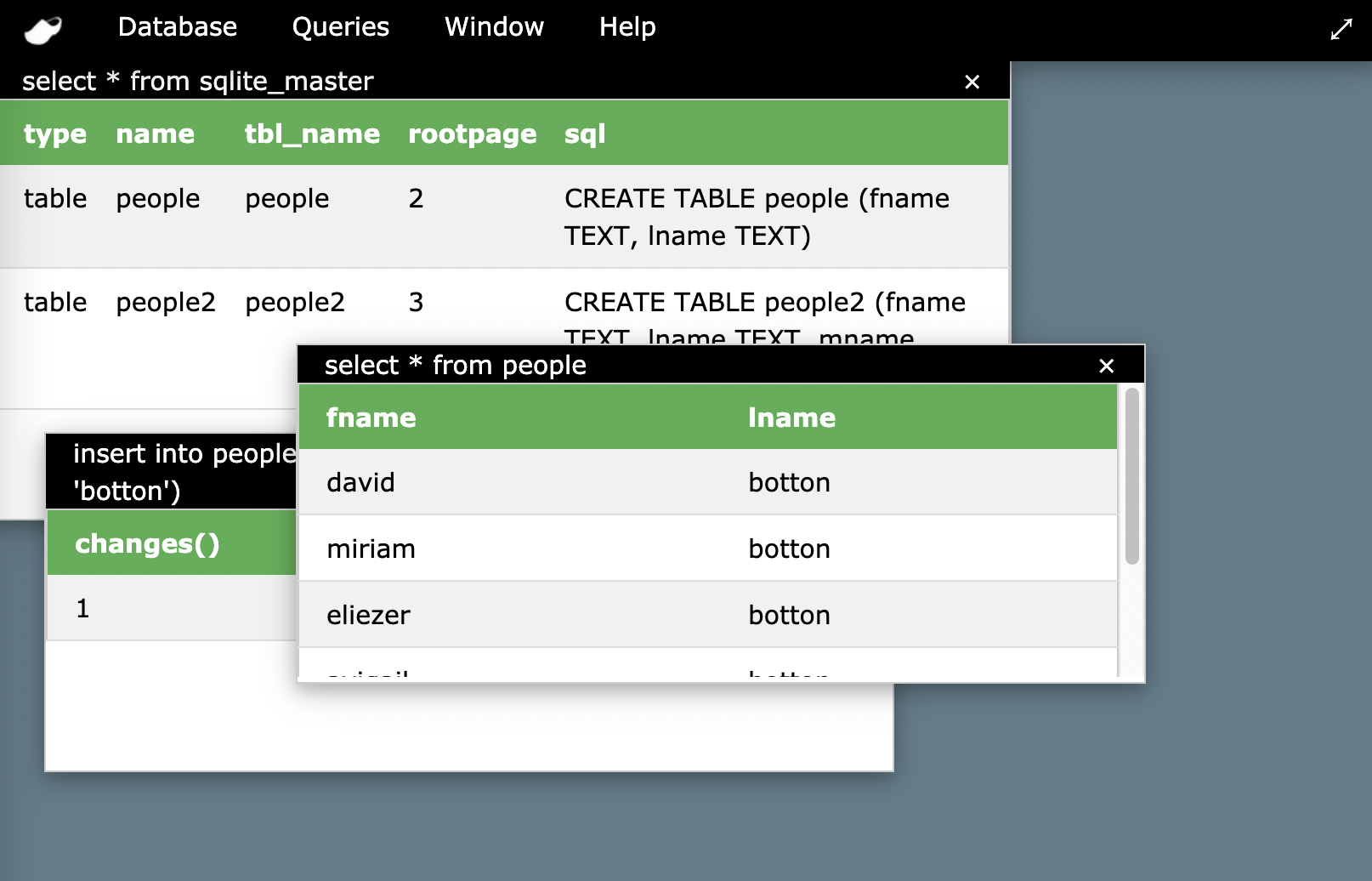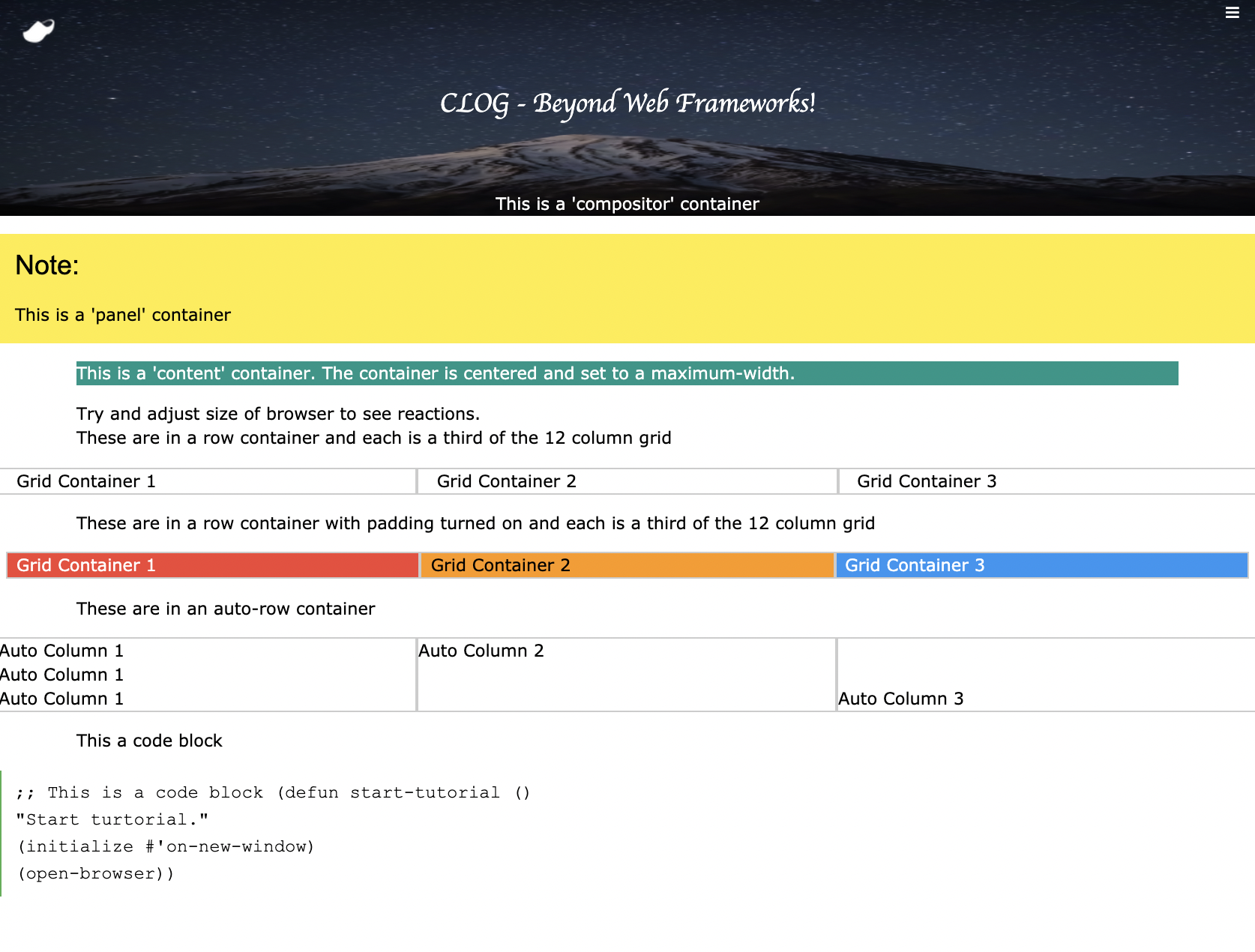David Botton [email protected]
The Common Lisp Omnificent GUI, CLOG for short, uses web technology to produce graphical user interfaces for applications locally or remotely. CLOG can take the place, or work alongside, most cross-platform GUI frameworks and website frameworks. The CLOG package starts up the connectivity to the browser or other websocket client (often a browser embedded in a native application.)
STATUS: CLOG and CLOG Builder 2.3 released. CLOG API Stable 4 years
The CLOG Builder is in 100% portable Common Lisp using the CLOG Framework.
CLOG tech was invented (first in Ada) and has been running in commercial production code and productss since 2013 and in Common Lisp since 2022. CLOG is used in commerical products, websites, and other opensource projects.
CLOG is being actively extended, the core API is stable and proven, the CLOG Builder is rich in features and is a full featured general purpose IDE for Common Lisp and web development (including support for working on JavaScript, HTML and more) and includes a GUI Builder for the CLOG Framework.
Check the github discussion boards for the latest on the project and support.
Consider sponsoring work on CLOG at https://github.com/sponsors/rabbibotton it really does help!
Some potential applications for CLOG:
- Cross-platform GUIs and Reports
- Secure websites and complex interactive web applications
- Desktop business software (CLOG Runs native on Windows, Mac and Linux)
- Mobile software (CLOG Runs native on Android and iOS)
- Massive multiplayer online games
- Monitoring software for embedded systems
- A fun way to teach programming and advanced multi-tasking parallel programming techniques. (CLOG is a parallel GUI)
- And the list goes on
The key to CLOG is the relationship it forms with a browser window or browser control compiled to native code. CLOG uses websockets for communications and the browser to render a GUI that maintains an active soft realtime connection. For most CLOG applications all programming logic, events and decisions are done on the server which can be local, or remote over the web.
CLOG is developed with ECL, CCL and SBCL, it is tested fairly regulary on Linux, Windows, Android, Rasperry Pi, and Mac. It is also know to work with the commercial Common Lisps as well.
CLOG works with QuickLisp and with OCICL distribution for builds.
To install Common Lisp with QuikLisp:
- Install Common-Lisp for MacOS
- Install Common-Lisp for Linux
- Install Common-Lisp For Android (Termux)
- Install Common-Lisp for Win64
For more advanced users:
For those new to Common Lisp or just want to quickly try CLOG use ther simple EZ standalone versions:
- https://github.com/rabbibotton/clog-win64-ez/releases
- https://github.com/rabbibotton/clog-linux-ez/releases
- https://github.com/rabbibotton/clog-linux-arm-ez/releases
- https://github.com/rabbibotton/clog-mac-ez/releases
Unzip, double click setup.bat or ./setup Run builder.exe or ./builder Update (almost daily :) use update.bat or ./update
As QuickLisp most frequently used - here are instructions:
CLOG v1 is in QuickLisp (ql:quickload :clog), therefore one should add the UltraLisp distribution to use CLOG v2 (alternatively use git)
To add UltraLisp to QuickLisp:
(ql-dist:install-dist "http://dist.ultralisp.org/"
:prompt nil)
You still need to update often the UltraLisp and QuickLisp distros with:
(ql:update-all-dists)
If using the CLOG Builder Options -> Update CLOG Builder will do this for you.
- To get started load CLOG and then can load and run the builder:
sbcl --eval "(ql:quickload :clog/tools)" --eval "(clog-tools:clog-builder)"
or if using OCICL see Install and Using OCICL on all platforms or if using emacs M-x slime then (ql:quickload :clog/tools)(clog-tools:clog-builder)
- In a REPL in the builder Tools -> CLOG Builder REPL (can also do all in the slime/sly REPL in emacs)
CL-USER> (clog:run-tutorial 1)
Tips for Windows WSL linux Install "sudo apt install xdg-utils wslu" to install xdg-open so that run-tutorial uses the windows browser. Also create or add to your %UserProfile% (home dir) a file .wslconfig with
[wsl2]
networkingMode=mirrored
To see where the source, tutorial and demo files are:
CL-USER> (clog:clog-install-dir)
Also in CLOG Builder use HELP -> Tutorials Dir
You can the run the demos with:
CL-USER> (clog:run-demo 1)
You can also open a "clog-repl" browser window to play from the common-lisp repl:
CL-USER> (in-package clog-user)
CLOG-USER> (clog-repl)
CLOG-USER> (setf (background-color *body*) "beige")
CLOG-USER> (create-div *body* :content "Hello World!")
The clog-repl URL is http://127.0.0.1:8080/repl *body* will always refer
to the last access of that URL.
To open the CLOG manual (or in the builder it is under Help):
CL-USER> (clog:open-manual)
Work your way through the tutorials. You will see how quick and easy it is to be a CLOGer.
Here is a very simple sample CLOG app (from Tutorial 1):
(defpackage #:clog-user ; Setup a package for our work to exist in
(:use #:cl #:clog) ; Use the Common Lisp language and CLOG
(:export start-tutorial)) ; Export as public the start-tutorial function
(in-package :clog-user) ; Tell the "reader" we are in the clog-user package
;; Define our CLOG application
(defun on-new-window (body) ; Define the function called on-new-window
"On-new-window handler." ; Optional docstring to describe function
(let ((hello-element ; hello-element is a local variable that
; will be bound to our new CLOG-Element
;; This application simply creates a CLOG-Element as a child to the
;; CLOG-body object in the browser window.
;; A CLOG-Element represents a block of HTML (we will later see ways to
;; directly create buttons and all sorts of HTML elements in more
;; lisp-like ways with no knowledge of HTML or JavaScript.
(create-child body "<h1>Hello World! (click me!)</h1>")))
(set-on-click hello-element ; Now we set a function to handle clicks
(lambda (obj) ; In this case we use an anonymous function
(setf (color hello-element) "green"))))))
;; To see all the events one can set and the many properties and styles that
;; exist, refer to the CLOG manual or the file clog-element.lisp
(defun start-tutorial () ; Define the function called start-tutorial
"Start tutorial." ; Optional docstring to describe function
;; Initialize the CLOG system
(initialize #'on-new-window)
;; Set the function on-new-window to execute
;; every time a browser connection to our app.
;; #' tells Common Lisp to pass the function
;; to intialize and not to execute it.
;; Open a browser to http://12.0.0.1:8080 - the default for CLOG apps
(open-browser))Other samples of CLOG on the web:
Get started learning CLOG and the CLOG Builder with
Tool Summary
- clog-builder - Rapid visual interactive development for Web and GUIs
- clog-db-admin - SQLite3 admin tool
High Order Extensions to CLOG
-
clog-gui - Desktop over the web
- Menus
- Windowing system
- Modal windows, Keep-on-top windows
- File Load / Save dialogs
- Alert, Input and Confirmation dialogs
- Form dialogs
-
clog-web - Webpage creation
- Auto column layouts
- 12 Point Grid System layouts
- Content containers
- Panels
- Sidebar menus
- Compositor containers
- Menus
- Alerts
-
clog-web-site - Instant themed websites with plugins:
- clog-web-page - create a theme based page
- clog-web-dbi - database driven websites (uses clog-auth)
- clog-web-forms - Instant web forms
- clog-web-themes - basic themes for clog based websites
- clog-web-content - database driven content,tags, comments (in progress)
- clog-web-blog - instant blogs (in progress)
- clog-web-cart - instant shopping carts (future)
-
clog-panels - Quick application layouts
-
clog-tree - Collapsable tree control
-
clog-presentations - bi-directional linking of Lisp Objects and CLOG Objects
-
clog-jquery - DOM queries
-
clog-data - Move data to and from groups of controls
- SQL writer helpers for basic SQL
- CLOG-Database - Database control for CLOG Builder
- CLOG-One-Row - One row at a time table access auto binds to controls in CLOG Builder
- CLOG-Lookup - Version of the select control (dropdown and listbox) that are database connected
- CLOG-DB-Table - Version of html table that are database connected
-
clog-auth - Authentication and authorization framework
-
clog-plugin - Custom Control Plug-in template for Builder and CLOG

